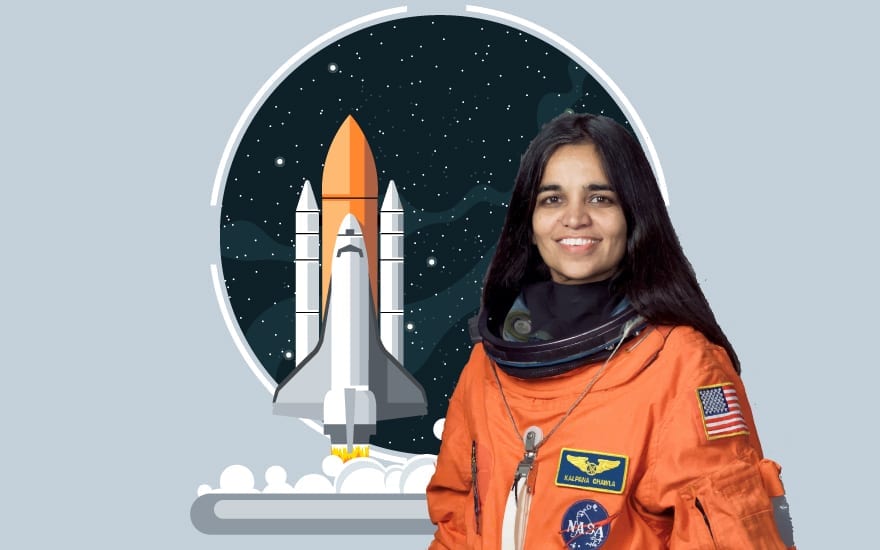A Nasa resupply spacecraft named in honor of late astronaut Kalpana Chawla was on way to the International Space station (ISS) today with nearly 8,000 pounds of scientific investigations, technology demonstrations and commercial products, and a new space toilet is part of the cargo.
Its features improve on current space toilet operations and help Nasa prepare for future missions, including those to the Moon and Mars. "The Universal Waste Management System (UWMS) demonstrates a compact toilet and the Urine Transfer System that further automates waste management and storage. The smaller footprint of the UWMS supports a possible increase in the number of crew members aboard the space station, as well as planning for future exploration missions," Nasa said in a statement.
A new crop of vegetables was also headed to the space station. While previous experiments have grown different types of lettuces and greens aboard the orbiting laboratory, the "Plant Habitat-02" investigation adds radishes to the mix, cultivating seeds to see how different light and soil conditions affect the growth.
"The findings could help optimise growth of the plants in space, as well as provide an assessment of their nutrition and taste". A Northrop Grumman Cygnus resupply spacecraft launched on an Antares rocket was scheduled to arrive at the space station around 5.20 a.m.
on Monday. Expedition 63 Commander Chris Cassidy of Nasa will use the space station's robotic arm to capture Cygnus that will remain at the space station until mid-December before it disposes of several thousand pounds of trash as it burns up during a safe re-entry into Earth's atmosphere. Another investigation 'Ammonia Electrooxidation' onboard the spacecraft examines a process for ammonia oxidation in microgravity.
An electrochemical ammonia removal system could serve as an innovative water recovery system on long-duration missions to the Moon and Mars and provide vital drinkable water in remote and arid areas on Earth. A medical investigation tests drugs based on messenger ribonucleic acids (mRNA) for treating leukemia. In normal gravity, the drugs to be tested are onco-selective, meaning they can distinguish cancer cells from healthy ones.
"Researchers expect any drugs that also demonstrate this trait in microgravity could make good candidates for safer, more effective, and affordable medicines to treat leukemia and other cancers. This could improve survival rates for thousands of people every year," Nasa said. The International Space Station Experience (ISS Experience) is also creating an immersive virtual reality series documenting life and research aboard the space station.
A new camera will be mounted to capture a spacewalk from start to finish as well as footage of Earth and the exterior of the space station. The Cygnus spacecraft for this resupply mission is named in honour of Chawla, who made history at Nasa as the first female astronaut of Indian descent. Chawla, who dedicated her life to understanding flight dynamics, lost her life during the STS-107 mission when the space shuttle Columbia disintegrated upon reentering Earth's atmosphere in 2003.
Kalpana Chawla was born in Karnal, Haryana on March 17, 1962. She received a bachelor's of science degree in aeronautical engineering from the Punjab Engineering College in India in 1982. She then moved to the US to pursue her education. Chawla began her career at Nasa in 1988 as a powered-lift computational fluid dynamics researcher at the Ames Research Center in California. Her work concentrated on the simulation of complex air flows encountered by aircraft flying in "ground-effect."




















